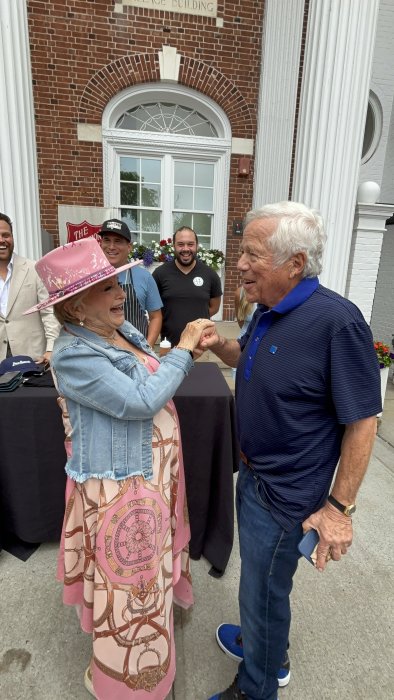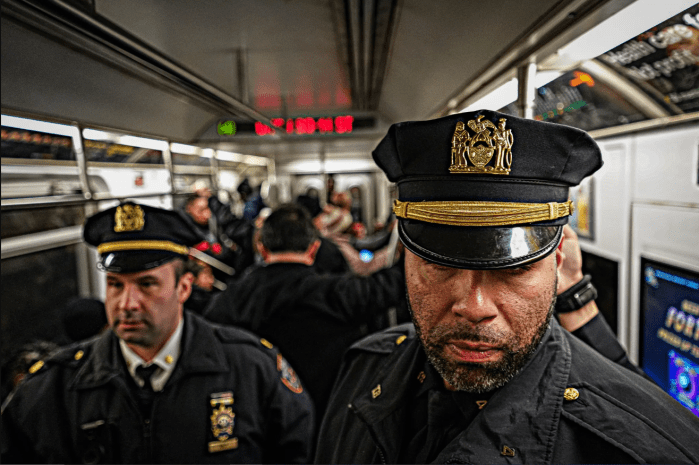The True Meaning of Labor Day
Once again, the nation marked Labor Day with a sense of foreboding as unemployment numbers continue to menacingly hover around the double digit mark. Washington’s $850 billion stimulus was supposed to put people to work but it has had, if anything, a deadening effect on economic growth.
The whole meaning of Labor Day is that since people have a right to live they have a right to work — the very means by which most of us live and support our dependents. John Smith saved Jamestown, America’s first viable colony, by laying down the law to his fellow Englishmen: “Those who don’t work don’t eat.” The maxim had a very salubrious effect on the fortunes of the flagging colony.
In Genesis, our first ancestors blissfully frolicked in the Garden until tricked by the serpent to eat of the fruit from the forbidden tree and were promptly remanded with a life sentence of hard labor: “Cursed is the ground for thy sake; in sorrow shall thou eat of it all the days of thy life; thorns and thistles shall it bring for thee; and thou shalt eat the herbs of the field. In the sweat of thy face shalt thou eat bread, till thou return into the ground for out of it was thou taken: for dust thou art, and unto dust thou shall then return.”
Since collective bargaining was not yet a tool of the labor class, what else could our first parents do but pull up their sleeves and get to work. Since those antediluvian days nothing has consumed more time and effort of the ordinary person than earning a living. It is no mystery then why every human society is centered upon a socioeconomic system to establish the production and distribution of goods. While private property existed before the annals of time, society has experimented with all kinds of economic arrangements first to subsist and then prosper: From the slave economy, to the feudalism of medieval times, to the system of private profit and free enterprises, which the U.S. has enjoyed since its founding. It was the capitalist system, presently under indictment for gross misbehavior, which resulted in the enormous and unprecedented wealth that had come to characterize Western Civilization. All those portrayals of the poor and indigent by Charles Dickens’ facile and emotive pen, though moving, were really a reflection of the success of the Industrial Revolution since it made the poor all that more conspicuous.
The inequitable fortunes of mankind aroused the entirely humane desire, so appealing and ancient, to create a more equitable distribution of the bounty of the earth. As thinkers speculated on the inequality of wealth, its causes and remedies, the idea of communism and socialism emerged. The institutions of Lycurgus at Sparta embodied many of the characteristics of socialism, as did Plato’s Republic. Much later, Claude de Saint Simon advocated the abolition of inheritance, socialization of the means of production and a state ruled by intellectual elites. Pierre Proudhon, a philosopher with panache, cavalierly dismissed a whole school of Aristotelian thought by calling private property a species of theft and Charles Fourier, starting with Brook Farm in Massachusetts, began organizing the world into phalansteries, a fancy word for self-contained communal units where each individual would contribute his labor.
All this, however, was mere saber rattling until the cerebrations of Karl Marx made socialism and communism a scientific theory. His theory of dialectical materialism, surplus value and his conviction that the history of all society is one of class struggle was brilliantly laid out in his Das Kapital. The grand architecture of Marx’s thought had enormous appeal to intellectuals and his ideas caught fire among revolutionaries. Without delving too deeply into the details, there was only one problem with Marx’s theory: It was wrong.
It would take a century and a half before those planting the seeds of Marxism would come to realize that its soil was barren — as barren as Marx’s own personal fortunes, which only through the charity of others kept him and his loved ones from a deplorable bankruptcy. There is an old saw about Marx’s wife, in the autumn of her life, melancholically ruminating that if Karl had spent more time making capital instead of writing about it, things would have been much better for the family.
Still, Marx’s cry in his Communist Manifesto for workers of the world to unite became so pervasive in Europe that in 1891 Pope Leo XIII issued an encyclical, Rerum Novarum (Of New Things). Its subtitle was On Capital and Labor and it set out the Catholic Church’s response to the social instability and labor conflict that had risen in the wake of industrialization that had led to the rise of socialism. The Pope restated the Church’s long-held position upholding private property rights, but also recognized that the free operation of market forces must be tempered by moral considerations: Namely, to ameliorate the conditions of the working class, the rights of labor to form unions while simultaneously rejecting both communism and unrestricted capitalism.
Marxism, socialism and communism never really caught on in the United States, at least with the general populace, although in 1912 Eugene Debs, the Socialist Party’s candidate for president received a million votes, a fair percentage of the voting population back then. Indeed, Labor Day was first established by President Grover Cleveland in 1894 in the aftermath of the deadly wildcat Pullman railroad strike that was crushed by Federal troops. Cleveland saw Labor Day as a way to mollify the grievances of union workers as well as recognizing the intrinsic value of the laboring classes.
As the nation grew rich, regulation and unionization became more prevalent. Labor unions stood for the protection of their workers and it is hard to find anything wrong with that. Negotiating collectively for wages and benefits enabled the work force to obtain a greater share of the profits but did nothing to generate economic growth to create new jobs. Indeed, unions have steadily lost power in this country with perhaps one out of five workers being a member. Gone are the days of the mighty John L. Lewis, president of the United Mine Workers.
As “President of the United Mine Workers,” Lewis was called a tyrant by his enemies and a benevolent dictator by his admirers. Whatever the characterization, it was in his DNA to bend men to his will. With his massive leonine head, thick shock of unruly hair, frosted bushy eyebrows and a chin so granite — like it appeared as if it was on loan from the Rock of Gibraltar, Lewis looked every inch the part of a labor leader. From his barrel-chested physique came a voice whose command of the English language was not only absolute, but thundered like John the Baptist preaching in the wilderness: “I have pleaded your case from the pulpit and from the public platform — not in the quavering tones of a feeble mendicant, but in the thundering voice of the captain of a mighty host, demanding the rights to which free men are entitled.”
When you heard Lewis’ harangue, you wanted to get up and march. Trade unions, while still formidable, are more and more being seen as organizations that use their power to raise wages and benefits to unrealistically high levels that the market cannot sustain compelling employers to either reduce the number of workers or outsource the work to countries where labor unions aren’t involved in the manufacturing process.
The stunning success of the capitalist system did much to marginalize the power of unions and except for a recession here and there, only the Great Depression, a faded memory, marred its triumph over want and stagnation. Moreover, it had seemed that regulatory measures the government had adopted in the 1930s safeguarded the nation from another such calamity until September of 2008 when the hallucination was punctured and the economic fortunes of the United States and beyond came crashing down.
What was forgotten is that markets are largely but not always self-regulating. Crisis is wired into the capitalist system. The very things that give capitalism its vitality, its power of innovation, its potential for explosive growth, its acceptance of risk is the very thing that creates speculative bubbles and catastrophic meltdowns. Was the recent crisis the result of excessive risks — yes — was it because of lack of regulation — yes — did greed play a role — of course — was it because government interference in financial markets resulted in easy money — absolutely.
Easy money allowed people to use homes as ATM machines and when house prices soared people borrowed more while savings plunged to zero: A fatal combination that froze liquidity and led to insolvency. The upshot was a call to arms for more government regulation as a measure of moral reprobation against the pretensions of the free market. Unfortunately government is overplaying its hand; as a sage once said, the problem with socialism is socialism and the problem with capitalism is capitalists. Reforms are sometimes necessary, but they should be strategically targeted rather than politically motivated.
Any sober review of the recent crisis would reveal that it was not the capitalist system that failed, only a segment of it, strongly abetted by government initiatives to create easy money. As long as we are operating under such illusions, the job market will continue to look bleak. Putting the brakes on unfettered capitalism is one thing, but bottling up those energies that keep the economy flexible, dynamic, progressive and innovative hurts Americans who need jobs, a future and hope.


































